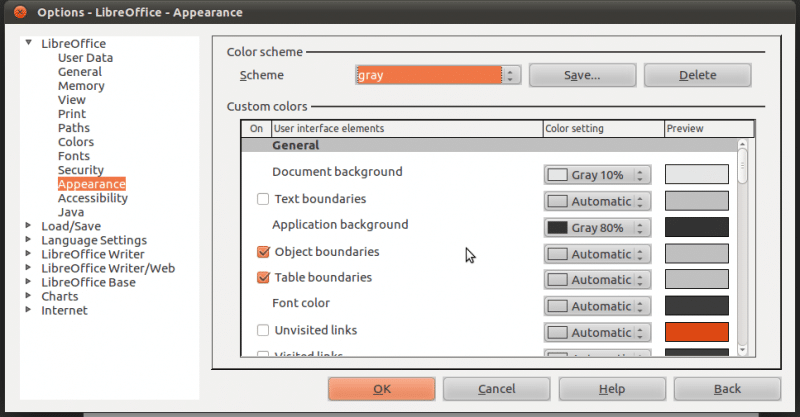A couple of months ago, Mark Shuttleworth, Ubuntu’s benevolent dictator, announced on his blog that by 14.04 (April 2014), he plans to bring Ubuntu to tablets, mobiles, and TVs. The announcement was met with surprise, shock, and some criticism.
Some people were excited about having Unity on their phones and tablets, while others thought of it as a disastrous decision. Whatever their reactions may be, we all know that entering the mobile market, that too in 2014, is no cakewalk, especially when the tumultuous market is ruled by another Linux-based operating system known as Android. However, before Ubuntu takes its first steps into the world of mobiles, tablets and TVs, it can learn a lot from the mistakes of its soon-to-be competitor.
Keep It Consistent
Unity should try as much as possible to stay true to its name. In other words, Canonical has to ensure that tablets, TVs, and mobiles all have the same interfaces, release schedules and apps selection. Ubuntu must strive to avoid the dreaded fragmentation issue that has been haunting Android right from the start. That said, Canonical must understand that some amount of fragmentation is unavoidable, since manufacturers want to provide their own ‘unique’ experience to users.
Make Things Easy for Developers
Initially, Android was not a great place to be as a developer. It had no public issue-tracking system, poor documentation and lacked a decent QA infrastructure. Though that improved over time, those issues were big enough to keep Android from overtaking iPhone.
For Ubuntu, if it wants to make its mark in the mobile market, it has to have a solid SDK right from the start. If Canonical cuts corners in this department, they’d have to make do with a deserted app store in the future. Besides giving app-makers the right set of tools, Canonical also has to ensure that developers can monetize their apps from day one.
A large app database is the biggest selling point of a mobile platform, and if Ubuntu manages to attract enough developers, Android and iOS might have a new competitor to deal with.
No Beta Testing On Users
When Android released Honeycomb, developers and open source supporters condemned Google’s decision to hold back the source code. However, that wasn’t the only problem Honeycomb suffered from. The tablets-only operating system also had a half-backed User Interface that was full of inconsistencies. And, even though Google recently released Honeycomb’s source code, it’s still something the search giant is uncomfortable talking about.
Canonical, at all costs, has to abstain from releasing anything half-baked as it did with Unity on Natty. They can’t mask the issue under the often-misused term “a new beginning” and expect things to improve and evolve over time. Canonical has to understand that now, on the mobile and television platforms, users will be paying for their products. And if they’re paying for it, they’ll expect nothing but the absolute best.
Tread Carefully While Designing
The design team has to be very careful so as to avoid any kind of Apple or Android hangover. The mobile market is extremely competitive, and if Apple or Microsoft spot any chink in their competitor’s armor, they’ll confront them with a barrage of lawsuits. Canonical is a company that cannot afford to – both financially and PRwise – handle any lawsuit like that. All it can do is design a UI that’s unique and doesn’t infringe on any patent.
Make One Device That Is Damn Good
Currently, there are thousands of Android devices in the marketplace. Many of them sell, but what really attracts consumers – especially those using rival brands – is a great device like the Samsung Galaxy Nexus. Devices like those showcase the real power of the software, attracting a large userbase to the platform.
When it started, Android didn’t have much to boast of, and many deemed it as one of Google’s biggest failures. However, when the search giant came up with Nexus One, then subsequently the Nexus S, consumers and developers started flocking to the platform. Similar thing is happening with the Windows mobile platform right now. Windows Phone OS, which had a sluggish start, has finally started to gain momentum thanks to the gorgeous-looking Nokia Lumia 800. Though I’m not much of a Windows fan, but I have to say that Lumia is the perfect marriage of hardware and software.
Ubuntu too can manage to make it big, if it makes one awesome device at the start. They’d have to partner with a big manufacturer like Dell or Samsung and come up with a hardware that perfectly complements the software.
Establish Tighter Control Over Apps
As of now, the Android Marketplace is ridden with malwares, spywares, trojans and crappy apps. According to a report by Juniper, malwares on Android saw a whopping 472% increase in just 3 months. This is a huge drawback for Android, especially when compared to the iOS marketplace, which, thanks to Apple’s restrictive policies, is completely spic and span. There’s no one else to blame for this problem other than Google, who has taken a lenient approach towards app developers.
Some people might argue that establishing tighter controls means compromising the openness of the platform. That, however, is not the case. Controls should be established at the lower levels, that is, at the stages when a developer submits the app for review. Google, despite being a billion-dollar company, has no decent screening process for the apps that enter the marketplace. This in turn has spurred a huge jump in the number of spammers taking advantage of the gaping flaw. A blog post by Juniper explains the problem in great detail:
What happens when anyone can develop and publish an application to the Android Market? A 472% increase in Android malware samples since July 2011. These days, it seems all you need is a developer account, that is relatively easy to anonymize, pay $25 and you can post your applications. With no upfront review process, no one checking to see that your application does what it says, just the world’s largest majority of smartphone users skimming past your application’s description page with whatever description of the application the developer chooses to include. Sure, your application can be removed after the fact—if someone discovers that it is actually malicious and reports it. But, how many unsuspecting people are going to download it before it is identified as malicious and removed? This is precisely what is playing out in the mind of mobile malware developers today.
Ubuntu has to ensure that it doesn’t commit the same mistake. It should have humans reviewing each and every application before it’s delivered to the marketplace. It might slow down the growth of its app repertoire, but it’s definitely worth the effort.
Summing up, it’s not going to be an easy road for Ubuntu. It’ll have to battle against behemoths like Apple, Google and its longtime friend Microsoft. Moreover, the state of the mobile market in 2014 is something that cannot be predicted right now. That said, if Canonical manage to pull this one off, it’ll be huge victory not just for the Linux community, but also for Shuttleworth who has recently come under a lot of criticism for his decisions.




